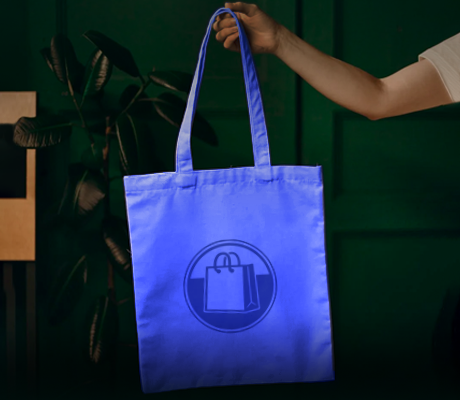What Are Jute Bags?
Posted by Julie Rotuno on 14th Jun 2022
If you are thinking about switching over to reusable shopping bags or cutting back on your plastic waste, then you probably have considered jute tote bags a couple of times. Although jute has been around for a long time and is completely natural, most people, especially consumers, know little about the material. If you are looking for a strong, durable material to use for bags, then jute is a fantastic option.
Here is everything you need to know about jute, including where it comes from, what it can be used for, and why it is a smart, sustainable choice.
What Is Jute?
As mentioned earlier, jute is a 100 percent all-natural fiber that comes from the jute plant. It has been used throughout the world for centuries to produce everyday items like rugs and clothing (hessian). Jute comes from vegetable fibers that are taken from the outer stem of the jute.
Jute is primarily grown in Bangladesh and India, around the Bengal Delta Plain within the Ganges delta area. Jute plants do need a lot of water to grow rapidly, but since this region in the world has high humidity and regular monsoon seasons, the plants do not require much irrigation. They get most of their water straight from the environment.
Why Is Jute a Good Choice For Bags?
Jute has recently received a lot of attention as a material for reusable shopping bags. It has quickly become one of the most relied upon alternatives to single-use plastic bags, especially in countries and states where such plastics have been banned.
Jute is durable and long-lasting, making it a worthwhile investment for anyone looking to make a greener switch.
Here are some reasons why jute is the ideal choice for tote bags and reusable grocery bags:
- Jute is an eco-conscious choice because it can be recycled, upcycled, composted, and is biodegradable. Compare that to a plastic bag that will hang around for 500 years on the seafloor.
- Jute is resilient and durable, can be washed, and used daily.
- Jute bags are excellent for carrying heavy, bulky items since they are often constructed with thick handles. The weight of jute is also very strong, so you can pack your reusable jute bags full of goods.
- Jute bags are usually naturally colored, but the bags can be customized. Jute takes dye well, and you can even print on the bags.
How Are Jute Bags Made?
Curious where jute bags come from? Here is the gist of the process for making jute bags:
1. The jute is first harvested via the retting process, where the fibers are slowly separated in running water and spun. During this process, non-fibrous pieces of the stalks and stems are stripped away, leaving only the jute fibers that will become twice and fabric.
2. After the retting process is complete, the fibers are untangled, cleaned, and drawn into a yarn. From there, the yarn is woven together before going through a loom.
3. Once jute has become a fabric, it is sent to manufacturers for cutting and preparation. The manufacturer sets up the dimensions of the bag then start stitching the pieces together.
4. If a customer desires it, the manufacturer can add print and color to their jute bag. Screen printing works well with jute and is cost-effective, too.
Is Jute Eco-Friendly and Sustainable?
While it is difficult to say for certain how environmentally friendly a product or material truly is, jute fiber is definitely a winner. Here are some reasons jute bags are eco-friendly:
- Jute is biodegradable and compostable
- Jute can be recycled
- Jute bags are highly durable and can be reused for many years
- Jute is stronger than plastic carrier bags, so you can carry more weight
- Jute plants can be grown with little to no chemicals, fertilizer, or pesticides
- Jute plants do not require a lot of irrigation and can mature within 6 months
- Jute can absorb a large portion of CO2 in the air despite taking up very little landmass for farming and harvesting
Yet, with all these reasons why jute is sustainable and eco-friendly, the benefits can only be tapped into if more people start using more natural fibers. How are you going to use your jute bag? How many unsustainable practices are you ready to give up?
Remember, it is awesome to invest in something that is reusable and sustainable, but it is not going to do anyone good if you forget to use it or keep the jute bag hanging on the hook.
Takeaway
Is jute the future of reusable bags? Maybe. With the eco-friendly benefits and high sustainability, it is definitely a material to consider for bags and much more. Additionally, jute bags with logos and style are a true statement piece that can be used for promotions and more. The customer can use it again and again, and you get free marketing.
If you are ready to see how jute bags can help your business and advertising, then fill out the contact form to get in touch. We look forward to hearing from you.



